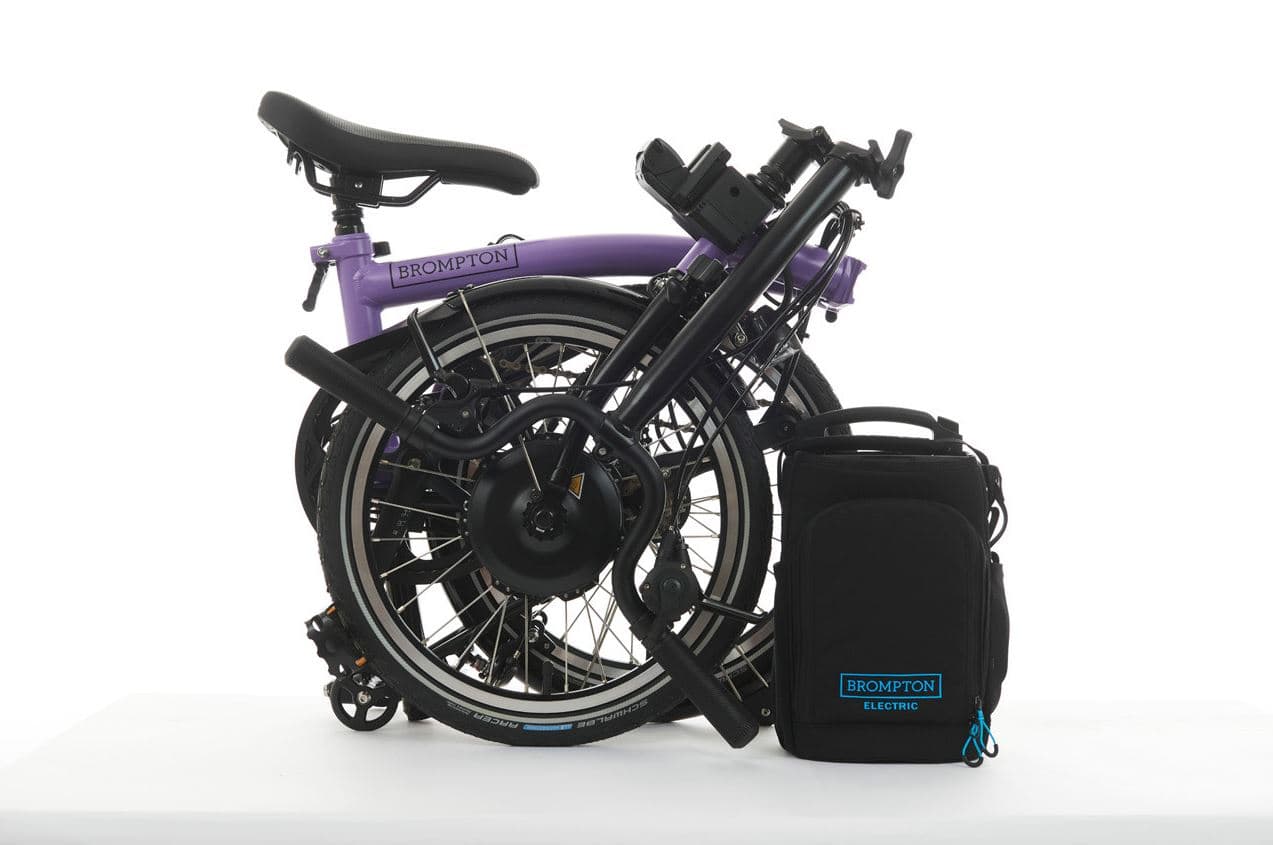The landscape of folding bicycles has taken a significant turn with the introduction of the Brompton Electric G Line, a truly innovative bike that combines power and portability. This new model marks a departure from the traditional design, embracing a wider frame and larger tires that allow for a more robust riding experience. With 20-inch cushy tires, the G Line performs exceptionally well on rugged terrains, making it suitable for adventurers who seek versatility beyond urban commuting.
The G Line integrates advanced features like disc brakes and a Shimano gear system, signifying an evolution in Brompton’s design philosophy. Available in various colors and sizes, the Electric G Line promises a comfortable ride for diverse riders. The rear-mounted 250-watt motor enhances the experience, effortlessly allowing for speeds up to 15.5 mph while reducing the strain on the rider, especially on flat paths.
Incorporating a well-engineered battery that offers an impressive range of 20-40 miles, this bike is designed for both convenience and efficiency. Lights and ample mounting points further extend its practicality due to its thoughtful design. However, this innovation comes at a cost; the G Line is heavier than previous models, which could present challenges when lifting or transporting it, particularly in urban environments.
Despite this, the Brompton Electric G Line stands as a testament to the brand’s commitment to enhancing the cycling experience, whether on trails or city streets. With its balance of weight and functionality, it heralds a new chapter for folding bikes, offering a fresh perspective for cycling enthusiasts.
The introduction of the Brompton Electric G Line marks a momentous development in the folding bicycle industry, which has been experiencing significant growth and transformation in recent years.
Industry Overview
The folding bicycle market has gained traction as urbanization rises and more consumers seek versatile transportation options. Folding bikes are particularly appealing to city dwellers who may lack storage space and prefer the convenience of easily stowing their bicycles. The integration of electric assistance, like that found in the G Line, further caters to consumers looking for efficient, eco-friendly alternatives to traditional modes of transport.
According to industry analyses, the global folding bicycle market is projected to grow substantially. Research indicates that the market could expand at a compound annual growth rate (CAGR) of around 7% over the next five years, driven by increased awareness of sustainable transportation and the rising popularity of cycling as an activity for fitness and leisure.
Market Forecasts
The surge in electric bicycles, particularly folding models, is likely to continue as technology advances and battery life improves. With models like the Brompton Electric G Line leading the charge, manufacturers might focus on enhancing power, portability, and user experience. The further development of battery technology, including lithium-ion and other innovative solutions, can be expected to extend the range and reduce the weight of electric folding bikes, addressing one of the primary concerns regarding heavier models.
In addition, as cities become more accommodating to cyclists through improved infrastructure and policies, the demand for folding bicycles that blend performance with practicality will grow. As more urbanites embrace cycling for daily commutes or recreational use, companies like Brompton are well-positioned to capture a significant share of this evolving market.
Issues Facing the Industry
Despite the positive outlook, the folding bicycle industry faces challenges. The primary concerns include the higher price point of electric folding bikes compared to traditional models, which may deter some customers. Additionally, the cycling community’s shift towards electric models may create a divide with purists who prefer the simplicity and lighter weight of non-electric bicycles.
Moreover, the environmental concerns surrounding battery production and disposal are paramount. As the demand for electric bikes rises, it is essential for manufacturers to address eco-friendly practices and recycling options for used batteries. Ensuring manufacturing processes are sustainable can enhance brand reputation and meet the expectations of environmentally-conscious consumers.
In summary, the Brompton Electric G Line signifies a pivotal moment in the folding bicycle market, aligning with broader trends toward sustainable transport. As the industry evolves, manufacturers will need to embrace innovation while addressing challenges to ensure these practical and portable bikes remain accessible and sustainable for future users.
For more information on cycling trends and electric bicycles, you can visit Bicycling and Cycling News.







